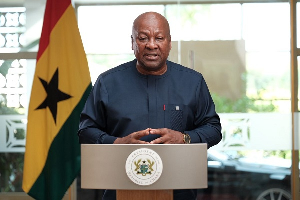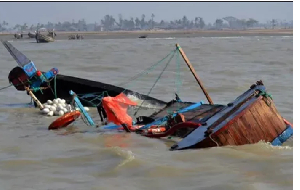A former deputy Minister of Finance, Mrs Mona Quartey, has questioned the Akufo-Addo government’s commitment to infrastructure development as she says a chunk of the country’s resources has been channelled into other areas.
The government forecasts a total expenditure to be GHS85.9 billion (21.6% of GDP) in 2020. Out of that amount, wages and salaries are projected at GHS22.9 billion and constitute 26.7 per cent of the total expenditure. Interest payments on public debt are projected at GHS 21.7 billion (5.4% of GDP) with a meagre capital expenditure of GHS9.3 billion (2.3% of GDP).
Even though the total amount of expenses by the government has increased over the years, a big challenge of the country is the low investment in capital expenditure.
Less than 30% has been dedicated to infrastructure by the current government with a large chunk going to employee compensation and interest payments.
Finance Minister Ken Ofori-Atta told Parliament as he read the 2020 budget on Wednesday, 13 November 2019 that the Akufo-Addo government will, this year, satisfy Ghanaians’ thirst for good roads.
However, Mrs Quartey argues that: “We haven’t seen any new initiatives in the area of infrastructure development except for the talk about rails. So, we hear the minister say: ‘The coming year will be the year for roads’, that is interesting; we are all excited about that but we know that that won’t happen overnight”.
She further wondered if the minister is not using such rhetoric to sway public support for the NPP as the country heads into elections in 2020 as she explained that the government has not taken action to ensure that the development that will spur investment is actualised.
“How is that going to really materialise when you are not spending on capital expenditure when a lot of your revenue is going into recurrent expenditure and debt servicing? Is this going to happen or are you just telling us because we are going into an election year?” she asked.
Mrs Quartey lamented the high-interest payments, high debt servicing and less capital expenditure that have bedevilled the country.
“If, indeed, you want Foreign Direct Investments (FDI) in this country, how are you preparing the country to receive the investments?” she questioned.
“If you will not spend on capital expenditure to grow the infrastructure of the country – the ports, the rail – and you will only talk about it and we will not see it being translated into actual infrastructure on the ground, then it will be difficult for foreigners to bring investments here”.
In her opinion, it is not wrong for the government to borrow funds, however, it must be invested in sectors that will generate returns to service the loans.
For her, “borrowing, in itself, is not a bad thing but what you do with it” matters.
Politics of Thursday, 14 November 2019
Source: classfmonline.com













